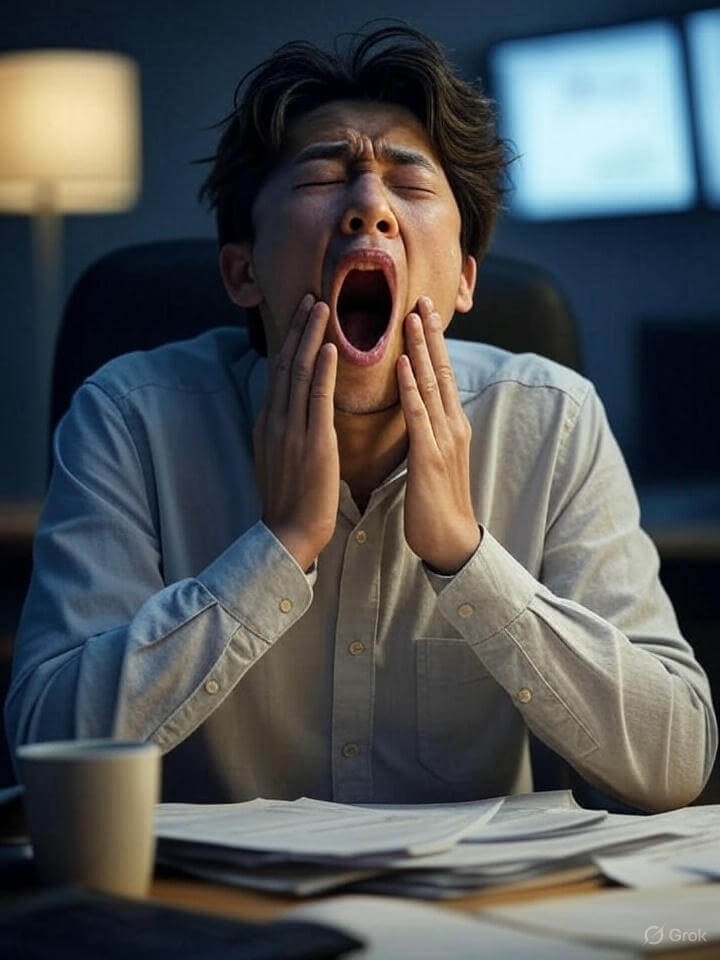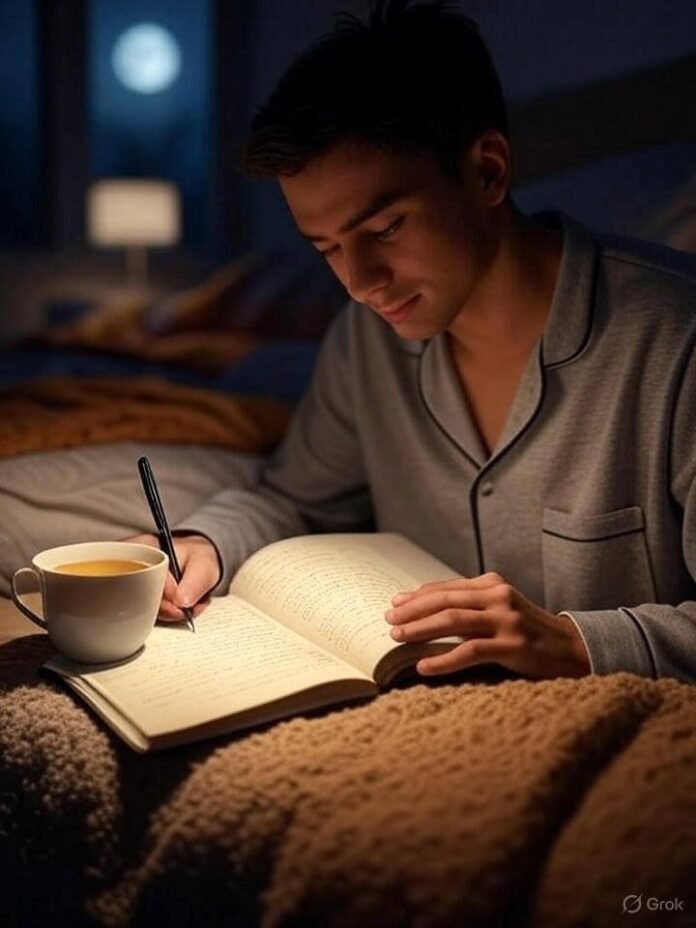So, let’s just say it: sleep therapy sounds kinda intimidating. Like, are they gonna hook you up to wires? Put you in a white lab room? Judge you because you stayed up till 3 a.m. watching cat fails on YouTube?
I used to think sleep therapy was for people with super serious problems—like those dramatic movie characters who fall asleep in their soup. But spoiler: it’s actually for regular people like us who just…can’t get it together at night.
And honestly? I wish I’d looked into it sooner. Because insomnia isn’t just about being tired. It’s about lying there at 2:12 a.m., making deals with yourself like, “If I fall asleep now, I’ll still get 5 hours.” Then 20 minutes later: “Okay, 4 hours is still fine. Totally fine. Humans can survive on that.”
Sound familiar? Yeah. That’s where sleep therapy comes in.
My “Oh Crap” Moment (aka why I finally looked it up)
True story: one night I was so sleep-deprived I put my coffee mug in the fridge and the milk in the pantry. (Spoiler: milk does not survive in the pantry. Tragic ending.)
That was my personal “okay, maybe I need actual help” moment.
Because it wasn’t just one bad night. It was weeks of tossing, turning, late-night Instagram scrolling, and dragging myself through the day like a zombie who needed a triple latte. And while I’m good at Googling random “natural remedies” (banana tea? tried it. Didn’t work), nothing stuck.
So, I finally asked my doctor about sleep therapy. And you know what? It wasn’t as weird or scary as I thought. Actually kinda fascinating.
So, What Is Sleep Therapy Anyway?
Sleep therapy isn’t just one thing. It’s more like a toolbox doctors and therapists use to figure out why your sleep sucks and what might actually fix it.

Sometimes it’s Cognitive Behavioral Therapy for Insomnia (CBT-I), which is basically retraining your brain and habits around sleep. Other times, it’s doing a sleep study to check if you’ve got sleep apnea or something medical messing things up.
And sometimes? It’s just talking through your routines and making changes that sound small but actually hit hard (like no caffeine after 2 p.m.—tragic, but effective).
What Happens in Sleep Therapy (a messy breakdown)
1. The Awkward First Chat
You sit down (or video call) with a sleep specialist. They ask stuff like:
- “How many hours do you actually sleep?” (My answer: define sleep)
- “Do you wake up at night?” (Yes. Usually with snacks on my mind.)
- “Do you snore?” (No comment. Ask my spouse.)
It’s basically like a confessional, but for your bedtime habits.
2. Sleep Diaries (aka homework, but for adults)
Yup, you might get asked to write down when you go to bed, when you wake up, how many times you scroll TikTok in the middle of the night… okay, maybe not that last one, but it’s implied.
At first it feels annoying, but then you realize, oh wow, I’m actually only sleeping like 5 hours most nights. Eye-opening. Literally.
3. CBT-I (the star of the show)
CBT-I is the MVP of sleep therapy. It’s not just “relax and breathe.” It’s like rewiring how your brain thinks about sleep. Some things they might make you do:
- Sleep restriction: Sounds cruel, right? But it’s limiting your time in bed to match the actual hours you sleep, so your body learns to crash faster. (My therapist was like, “No naps either.” I cried.)
- Stimulus control: No lying in bed awake for hours. If you can’t sleep, you get up and do something boring until you’re tired. (Reading the IRS tax code works wonders.)
- Relaxation training: Stuff like progressive muscle relaxation or breathing exercises. Basically tricking your body into chilling out.
And the wild thing? It works. Not overnight, but over weeks, your body and brain get the memo.
4. Sleep Studies (cue the wires)
Not everyone needs this, but if your doctor suspects apnea or restless leg or something medical, they might send you for a sleep study.
Yes, you wear wires. Yes, it’s awkward. But they let you bring your own PJs, and honestly, it’s not that bad. They monitor your breathing, heart rate, brain waves—all the nerdy science stuff.
And if they find something? Boom. Real answers.
My Personal Takeaways (aka “what nobody tells you”)
- It’s not instant. This isn’t NyQuil. It’s like working out—you don’t get abs after one sit-up, and you don’t fix years of bad sleep in one session.
- It’s kinda emotional. Talking about sleep actually brings up a lot—stress, habits, even childhood stuff. Like, oh cool, insomnia is a team effort with my anxiety.
- The freedom feels good. Once you realize you can train yourself to sleep better, you stop feeling so helpless. And that’s huge.
Who Should Try Sleep Therapy?
Honestly? Anyone who’s:
- Tired of being tired.
- Tried melatonin, tea, apps, and YouTube meditation loops and still can’t sleep.
- Dealing with insomnia more nights than not.
- Waking up exhausted even after a “full night.”
If that’s you—yeah, it might be time.
The Weirdest Thing I Learned
You know how everyone says, “Just go to bed earlier”? Yeah, sometimes that makes it worse. In sleep therapy, they actually told me to go to bed later. Like midnight instead of 10. Because it forced my body to crash instead of tossing for 2 hours.
It felt backward, but it actually worked.
Things You Might Expect During the Journey
- Some nights will feel worse before they get better.
- You’ll learn you’re probably drinking caffeine way too late. (Guilty.)
- You’ll get weirdly proud of your sleep diary like it’s a high school planner.
- Friends will ask, “How’s sleep therapy going?” and you’ll say something like, “Weirdly good?”
Quick FAQs (because you’re probably wondering)
Q: Does insurance cover it?
A: Sometimes! Depends on your plan.
Q: How long does it take?
A: Usually a few weeks to months. It’s a process, not a pill.
Q: Do I have to give up coffee?
A: No, just…not at 6 p.m. unless you’re a chaos gremlin.
Final Thoughts (if my brain lets me have them)
Look, sleep therapy isn’t magic. It’s not like you go in, someone waves a wand, and suddenly you’re Sleeping Beauty. But if you’re stuck in that cycle of exhaustion, it’s worth trying.
It gave me actual tools instead of just “hope tonight’s the night.” And now? I still have off nights (don’t we all), but I’m not living in a permanent fog.
So if you’re curious—go for it. Worst case, you waste some time. Best case? You finally get the kind of sleep that doesn’t make you want to cry into your iced coffee at 9 a.m.



































